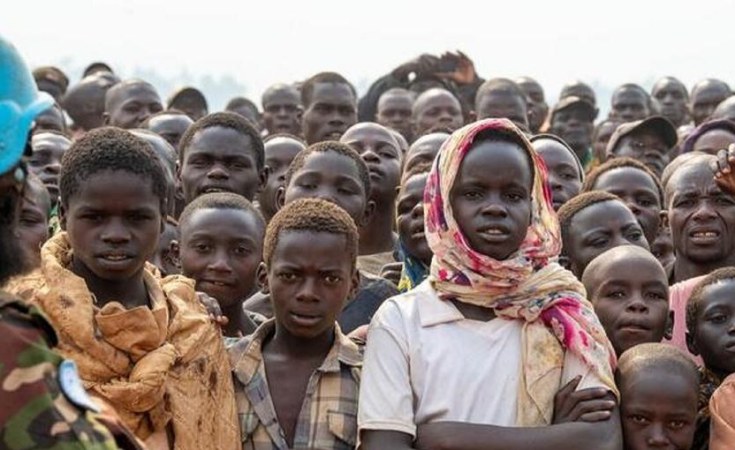Nairobi — Rwanda has protested the United States characterization of the DRC-backed Democratic Forces for the Liberation of Rwanda (FDLR), as a 'negative force' marking a departure from an initial 'terrorist' designation.
Kigali described the description of FDLR, which the US designated a terrorist organization in 2001, as 'shocking', questioning Washington's ability to mediate peace in the region.
The response came following the statement released by the US Department of State Spokesperson Matthew Miller who urged DRC to "continue to support confidence-building measures, including ceasing cooperation with the FDLR, which he said exposes the civilian population to risk.
But Rwanda which has accused President Felic Tshisekedi of ejecting the East African Regional Force from Eastern DRC rejected the statement terming the description of the rebel group as untenable.
"To characterize this genocidal and terrorist outfit merely as an 'armed group named as a negative force by regional bodies and the government of the DRC' is a shocking and cynical act of realpolitik, which calls into question the ability of the United States to serve as a credible mediator in the Great Lakes Region," Rwanda's Foreign Ministry said in a statement on Sunday.
Kigali noted it was the U.S. Department of State which in December 2001 added FDLR then known as "ALIR a.k.a. Interahamwe, ex-FAR" - to the Terrorist Exclusion List under the provisions of the Patriot Act, after the group murdered, and in some cases raped, eight Western tourists in Bwindi, Uganda, including two Americans.
Further, Kigali said Miller's statement "fundamentally distorts these realities."
President Paul Kagame's administration added that the statement contradicts the "substance and tone" of the confidence-building process initiated by the US Director of National Intelligence in November 2023, which they argue created a productive framework for de-escalation.
Targeting Congolese Tutsis
Kigali added that it will take Washington to task over the statement.
"Rwanda will seek clarification from the U.S. government to ascertain whether its statement represents an abrupt shift in policy, or simply a lack of internal coordination," Rwanda MFA said.
Kagame maintained that DRC support for FDLR is a matter of state policy, not the choice of individual actors.
He stressed that ending Congolese state support for FDLR, and ensuring their demobilization and repatriation to Rwanda, is a "non-negotiable requirement to protect Rwanda's territorial integrity."
Rwanda further noted that FDLR is fully integrated into the Congolese Armed Forces (FARDC), as documented by the UN Group of Experts.
The Foreign Office that the coalition between the Congolese Army and FDLR poses a threat to Rwanda's national security.
Rwanda said that the decision by the DRC to launch combat operations in North Kivu, contravenes regional mechanisms, and aims to expel M23 and Congolese Tutsi civilians into neighboring countries, including Rwanda.
"Because of that growing risk, Rwanda's position is that the M23 issue must be resolved politically amongst Congolese. It will not be accepted for the problem to be externalized into Rwanda, by force, once again," Kigali explained.
Kagame, an ethnic Tuitsi, has repeatedly denied accusations of supporting M23 rebels blamed for destabilizing DRC, claiming instead a policy by Kinshasa to eliminate Congolese Tutsis and expel them to Rwanda.
About The Author
Bruhan Makong is a dedicated journalist who reports on crime, human rights and global affairs. He is passionate about uncovering the truth, amplifying the voices often drowned in silence and holding those in power to account.


